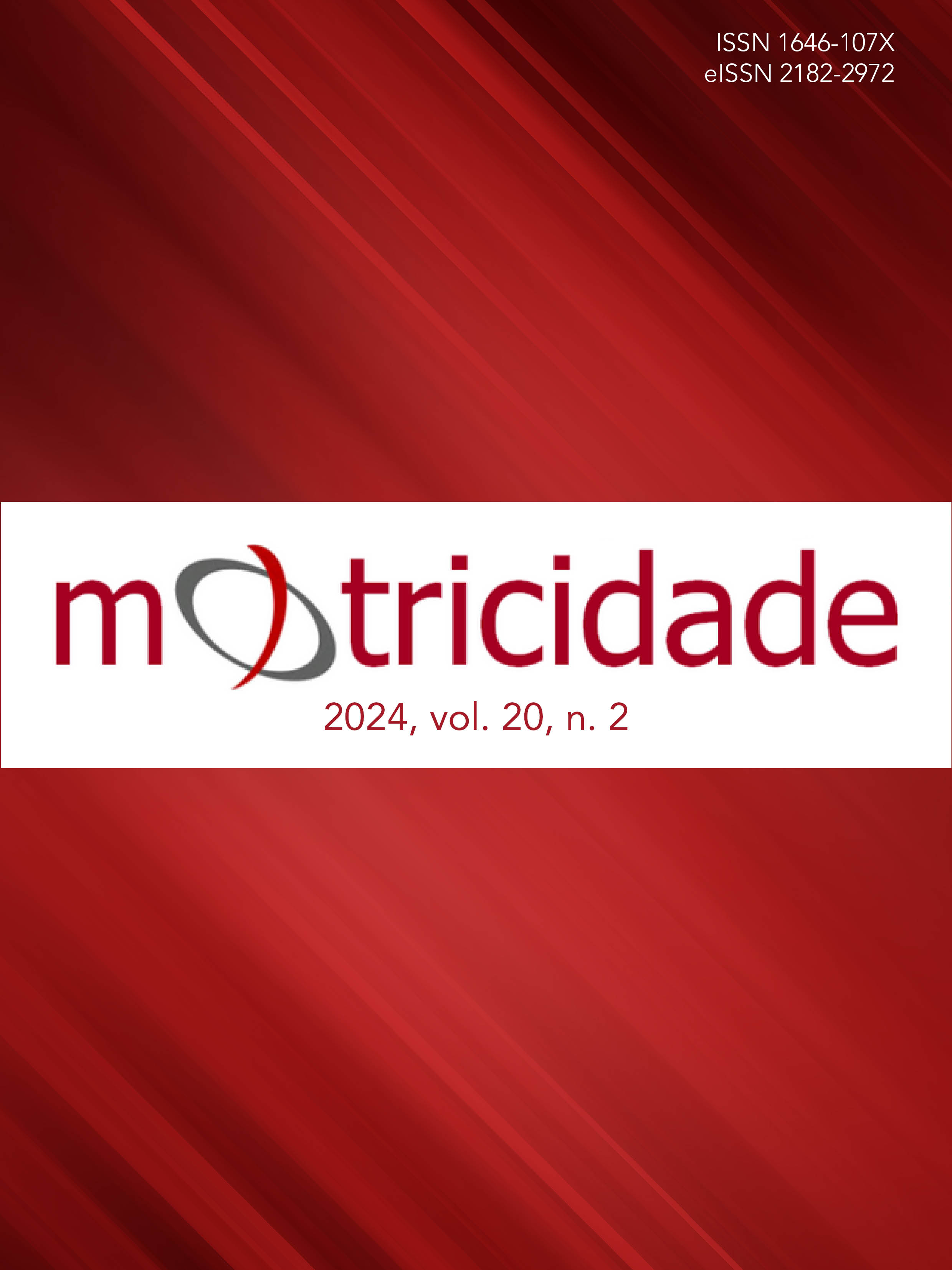Functional fitness and quality of life in people with intellectual and developmental disabilities: an exploratory study
DOI:
https://doi.org/10.6063/motricidade.33482Keywords:
Intellectual and Developmental Disabilities, Physical Exercise, Physical Well-Being, Functional FitnessAbstract
Despite physical exercise is a good indicator of health promotion, the population with intellectual and developmental disabilities tends to have high levels of physical inactivity that influence their physical fitness, health, and quality of life (QoL). The present study aimed to analyse the functional physical fitness and QoL, as well as the associations between them, of a sample of the population with IDD. Thirty-seven individuals (42,54±11,12 years) with IDD were evaluated through the tests standing up and sitting on a chair, timed up and go and walking for 6 minutes, with the purpose of analysing physical fitness and the Personal Outcome Scale (POS) to measure physical well-being. Pearson's correlations were applied and the correlation between physical well-being and the tests stand up and sit down and walk for 6 minutes was verified. The results indicate an association between functional skills measured through the tests and physical well-being, suggesting that the promotion of these skills can positively influence the physical well-being of the sample used.
Downloads
Published
Issue
Section
License
The authors of submitted manuscripts must transfer the full copyright to Journal Motricidade / Sílabas Didáticas Editions. Granting copyright permission allows the publication and dissemination of the article in printed or electronic formats, and copyrights start at the moment the manuscript is accepted for publication. It also allows Journal Motricidade to use and commercialise the article in terms of licensing, lending or selling its content to indexation/abstracts databases and other entities.
According to the terms of the Creative Commons licence, authors may reproduce a reasonable number of copies for personal or professional purposes, but without any economic gain. SHERPA/RoMEO allows authors to post a final digital copy (post-printing version) of the article on their websites or on their institutions' scientific repository.


